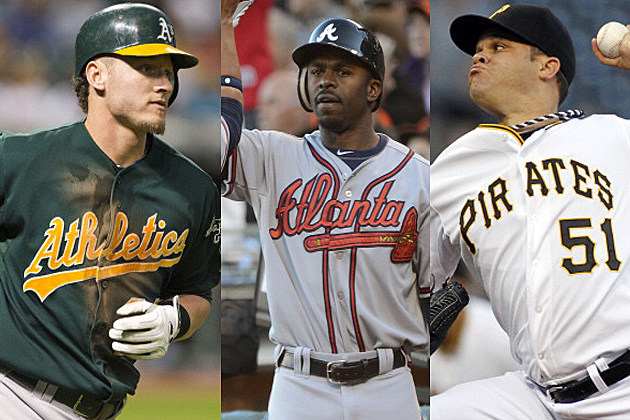
Antitrust Law
No, seriously. I live at an intersection, and the owners on all four corners sell parking. And each week we yell or mosey across the street and fix our prices. It's almost always $20 (at least these days - it was less in the dark years when The Blue was awful), but it's still straight-up price fixing. It is, no doubt, a restraint of trade, which the Sherman Act expressly forbids.
I'm not going to spend a lot of time on this because the idea of a game day attendee suing the four of us under the Sherman Act is so patently ridiculous. But there are some actual legal issues that we could spend time discussing if we wanted. Is our agreement a contract? We exchange promises of a sort, that might serve as consideration. Is our commerce within Congress' power? I almost always get out of state license plates, there's a colorable argument it's "interstate." I'll stop, but hey - if you're a contracts or antitrust professor, food for thought for exam questions.
Of course, underlying all of this is what might be considered an economic "law:" supply and demand. The supply on my corner is fixed; we can only get so many cars on our lawns. But demand various on any number of axes. If Michigan sucks, demand goes down. The demand over a given period of time, at least, is different for 12:00 starts and 3:30 starts - they trickle in a lot more slowly for later games. And, as I'm learning all too concretely this year, demand varies a lot based on traffic patterns. Which brings us to:
Federal and State Bond Issues
The bridge between my house and The Big House

is under construction, as is a HUGE portion of the major road leading in from the east. These are paid for by bonds and state and federal expenditure, which are authorized by a complex set of laws. You would think this has little to do with my parking situation, but since the traffic patterns have created new bottlenecks away from my house and decreased the overall traffic on my side of town, these expenditures have made parking on my corner a lot less attractive. I assume that lawn owners on the other side of town and at the new bottlenecks have seen a substantial uptick in their traffic. Point is, infrastructural construction paid for an authorized pursuant to law have had a material effect on how parking is done around my house.

The Informal Norms of Residential Parkers
Yeah, this is a thing. My neighbors and I may all agree to a fixed $20 price at the start of the day, but it's understood that as game time approaches we can lower our prices with reprobation. What happens, you might ask, when one of us bucks the norm and decides to be a rational maximizer and undercut our neighbors? I don't know. No one has in the five years I've lived here. The norms of cooperation are pretty strong.
As are the norms that govern the parkers themselves. I never had to ask anyone to clean up, or to not grill, because the norms of parking - heck, of basic decency - meant that no one ever did something like fire up a grill without asking me first, and everyone always cleans up after themselves. And, as you might already have guessed, these aren't the only norms that influence how I go about my business on Saturdays.
The Rules of Partying
I throw a tailgate for friends on home game days pretty much without exception.

It would be weird for me to ask everyone over and then spend all day in the driveway, don't you think? There are certain expectations and rules of civility that come with hosting a party, and most Saturdays I have to make choices about when I can stay out on the driveway and usher cars in, and when I need - ok, "get" - to go back and have BBQ and some beers with my friends. It doesn't cause problems most of the time, but it's another set of etiquette considerations that play into what I do on Saturdays.
I could probably get more detailed, but I think you get the point. It seems simple. I put on a hat and sunglasses, drag my sign out to the road, open a beer (are there rules about how close to the road I can take a visible alcohol container?), and wave cars onto my lawn while collecting their cash. It's the easiest money I've ever made. But lurking in the background behind even such a fun, seemingly simple thing, there are lots of laws and informal rules that impact how I go about my business. I don't think about them all the time - I do have to get out of bed in the morning - but there they are. Something to think about if you ever come tailgate with me.





